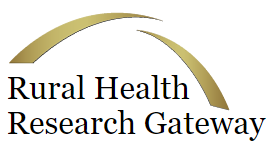September 19, 2025

New FMT Resource: Sustaining Rural Labor & Delivery Programs
Over the past decade, hundreds of rural hospitals have stopped offering Labor & Delivery services, and many remaining programs face financial and operational challenges. Drawing on case studies from previous Stroudwater Associates engagements, this resource details three strategies that may bring a Labor & Delivery program closer to sustainability and prevent unnecessary closures in rural areas.
These strategies ensure that Critical Access Hospitals and rural hospitals understand how to properly:
- Allocate costs and statistics in the Medicare Cost Report to maximize the value created by the Labor & Delivery program,
- Evaluate the contribution margin of the program, and
- Leverage other opportunities, such as partnerships and family practice obstetricians, to enhance the efficiency of the program.
This resource can be used by hospitals to support informed decision-making and optimize resource allocation to improve financial sustainability and ensure continued access to Labor & Delivery services in rural communities.
Click Here for Sustaining Rural Labor & Delivery Programs Resource






